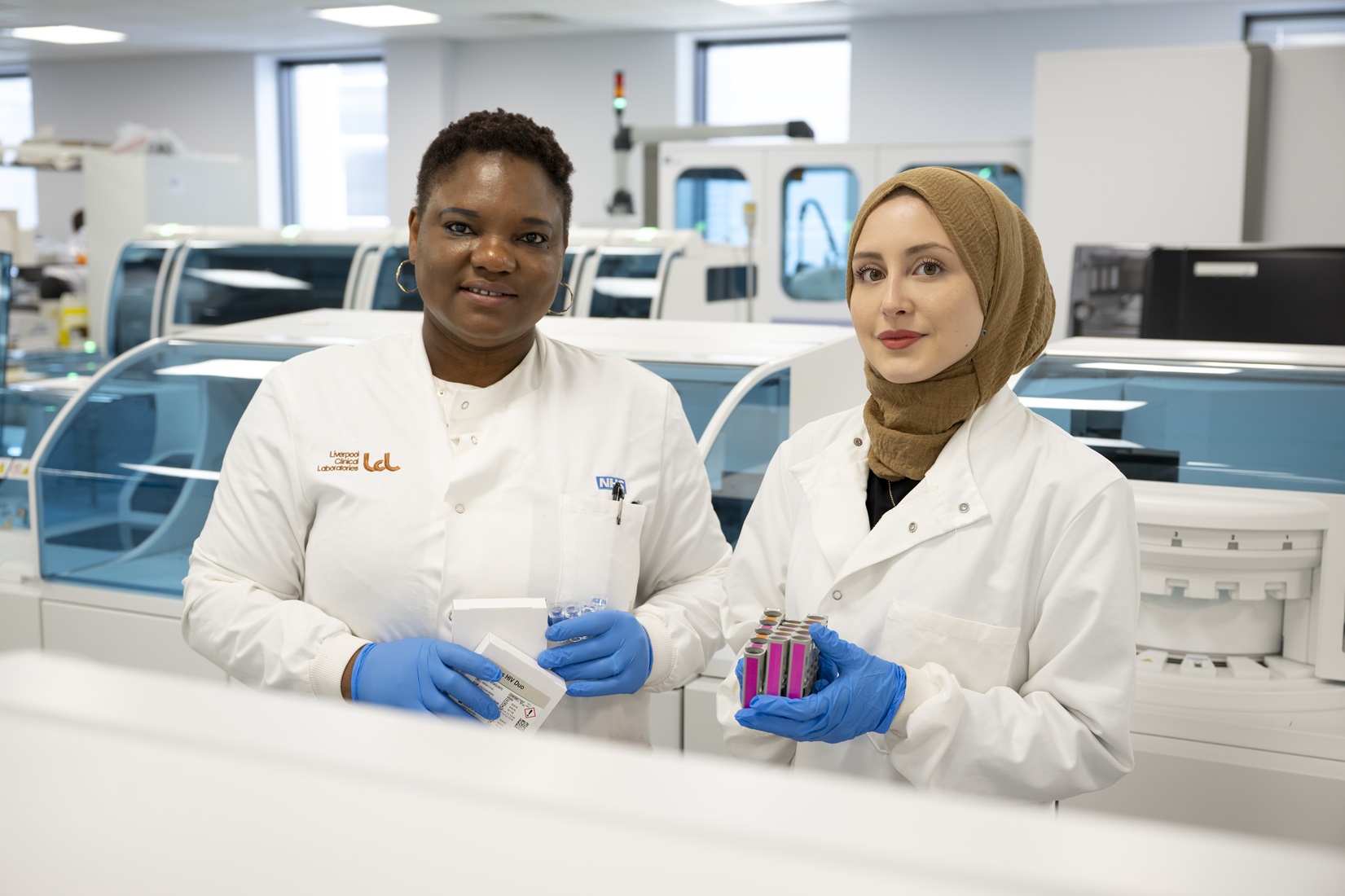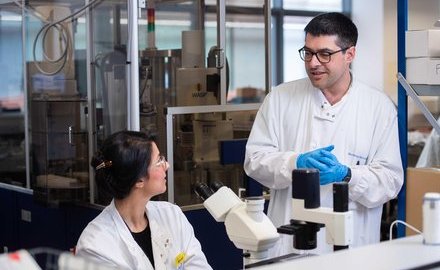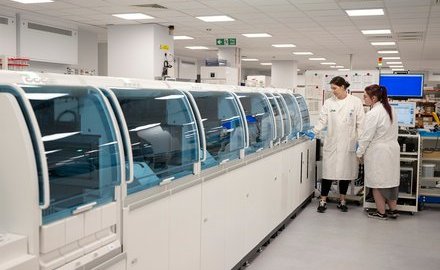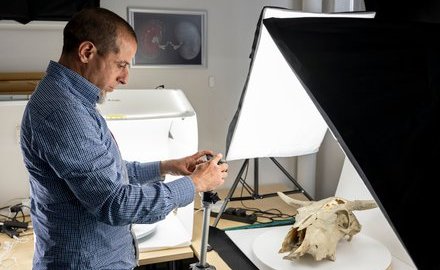Careers in pathology
From investigating infertility to researching neurological disorders, pathology careers are incredibly diverse – each focuses on a different area of prevention, diagnosis and treatment of disease.

Pathologists are medically or scientifically qualified and work in hospitals and laboratories with other doctors and healthcare professionals. Every blood test, biopsy sample, cancer screening test or search for infection will involve a pathology team. Many also conduct research, lead on training and education, and act as expert advisors to healthcare organisations and the government.
Broadly speaking, those working in pathology focus on one of eight areas. The four most common are:
- tissues and cells, studied by histopathologists, who play a key role in diagnosing or excluding cancer, and are the only pathologists to carry out post mortems
- blood, studied by haematologists, who diagnose and treat people with blood disorders
- the chemistry of the body, studied by chemical pathologists, who help diagnose and plan the treatment of diseases such as diabetes
- infection, studied by microbiologists and virologists, who work together to diagnose and manage infections in patients and communities.
Other pathologists work in smaller, but no less important, fields, e.g. focusing on immunity, genetics and reproduction, toxins and animal disease. There are actually 17 pathology specialties in total, offering a diverse array of career options.
Choosing your role
When choosing what you’d like to do it’s worth considering which your best subjects are, what you find interesting and whether you’d prefer to become a doctor or a scientist.
What fascinates you?
Consider what aspects of science and medicine fascinate you. Maybe you’re keen on using microscopes and analysing and identifying patterns. If so, working as a histopathologist – and leading on the diagnosis of disease in tissue – might suit you well. Or perhaps you like the idea of helping others have a family – you could thrive in a career as a reproductive scientist. To find your fit, explore the different areas of pathology.
Medicine or science?
Many people working in pathology start out as either a doctor or a scientist – which is why many describe pathology as the bridge between medicine and science. Whilst both doctors and scientists in pathology focus on the prevention, diagnosis and treatment of disease, the educational route you take will shape the roles you’re able to work in.
Careers Packs
Download the careers packs below for more information and resources about five of the pathology specialties.
Find the role that's right for you



